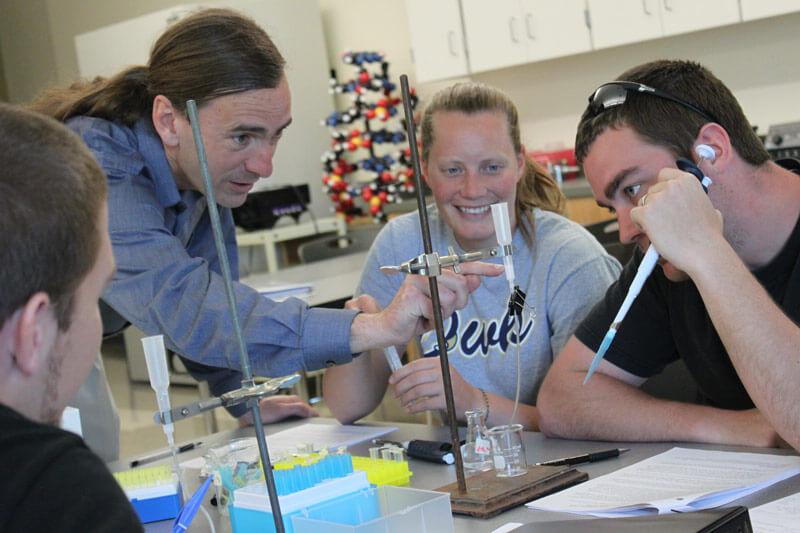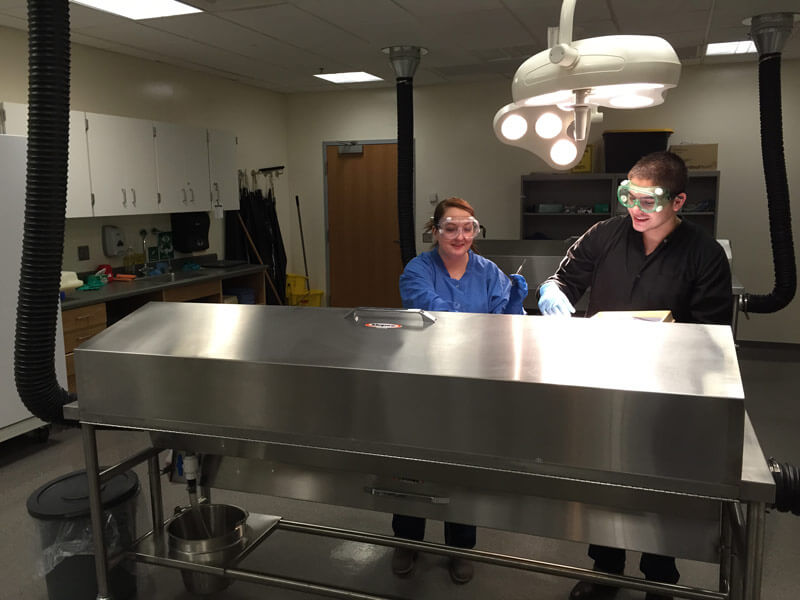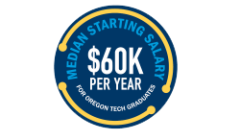
Get on track for the most demanding and rewarding medical careers anywhere. Our graduates get accepted into professional graduate programs such as medical school, dentistry, pharmacy, and more.
This degree program provides an intensive course of study in the basic sciences, social sciences, communication, and mathematics to prepare students for entry into professional programs. Our science classes include hands-on labs with professors, a strong emphasis on medical application, and critical thinking about case studies and relevant biomedical research.
The program meets or exceeds prerequisite requirements for graduate schools of:
- Medicine (Pre-Med)
- Osteopathic medicine (Pre-Med)
- Dentistry (Pre-Dental)
- Veterinary medicine
- Optometry
- Pharmacy
- Physical Therapy
- Occupational Therapy
- Podiatry
- Physician Assistant
All Pre-Professional Pathways and Resources
Courses in health management, medicine microbiology, biochemistry, and molecular and cell biology also provide preparation for careers in biotechnology or graduate work in public health, medical administration or science PhD programs.
There are several faculty advisors in our program and we encourage students to work closely with the advisor they connect best with. The Biology–Health Sciences program also urges students to begin volunteering in medical settings, possibly during high school and especially during college. Our Health Sciences student club helps students get connected with volunteering and shadowing opportunities, often at the hospital located just across the street from Oregon Tech, or at nearby medical offices.
Meet The Faculty
Careers
With 100% of Oregon Tech Biology-Health Sciences graduates either employed or seeking an advanced degree within six months of graduation, our graduates who apply to graduate programs are often accepted. Our alumni in graduate school often report that they are better prepared than their peers from other universities, and they often become leaders within their graduate programs and are highly successful in their professional careers.
Average annual salary** for medical professions our graduates work in after receiving advanced degrees:
**U.S. Bureau of Labor Statistics, Oregon, May 2016
Some paths other than grad school include:
- Clinical or research lab tech
- Phlebotomist
- Clinical Lab Science
Core curriculum includes:
- Full-year freshman/sophomore classes with labs in General Chemistry, Principles of Biology and General Physics that are foundations for everything else, and required for most graduate programs.
- Math including calculus and statistics to increase your quantitative skills.
- Classes in communication and humanities to complement your scientific education.
- Classes in social sciences including medical sociology and psychology that are increasingly needed to understand healthcare needs today.
- Full-year, upper-division classes in Advanced Anatomy & Physiology, including hands-on cadaver dissection, and in Pathophysiology to learn how the human body can fall out of normal.
- Medical Microbiology where you will learn about microorganisms, explore how pervasive they are in our environment, and test different infection-control measures.
- Full-year, upper-division classes in Organic Chemistry and in Biochemistry that focus on medical applications and include inquiry-driven labs where students design some of their own experiments.
Our students also choose among classes in medical terminology, nutrition, medical genetics, neuroscience, developmental biology, cell biology, clinical pharmacology, nanoscience, parasitology, kinesiology, immunology, epidemiology and others. While the curriculum is very challenging, admission into medical schools is highly competitive and requires excellent academic achievement. These courses feed student interests as well as helping them become strong applicants for the graduate school programs of their choosing.









